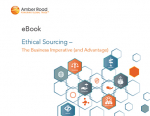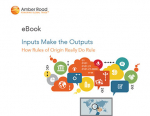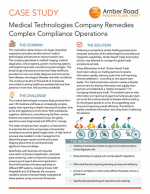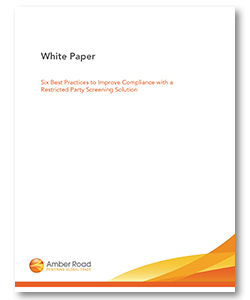Six Best Practices to Improve Compliance with a Restricted Party Screening Solution
Screening for sanctioned parties is the foundation of many compliance and security programs. This white paper explores best practices to help you gain a better understanding of how to select a solution.
Failure to screen has resulted in sanctions or fines for many small and large companies across various industries. Demonstrating reasonable care is an important way for companies to mitigate their risk and exposure.
Organizations face several challenges when it comes to restricted party screening (RPS):
- Accurate and current content – Organizations frequently don’t know which lists to consult, nor do they know when those lists change. Many do not have someone within the organization who monitors and manages the updates.
Advanced screening methods – If screening is done manually, it may be unclear how a compliance professional should compare names and addresses of trade parties to entities on the lists. There is also the problem of data entry mistakes and screening of partial names.
Real-time screening as lists change – Organizations with many thousands of trade partners must continuously re-screen them against changing lists.
- Workflow – It may not be clearly defined how a compliance professional handles situations where a trade partner matches an entity on the list. How are matches resolved or cleared if they are in error?
Many companies have acquired a technology solution to help them manage screening. Given the sheer number of restricted party entities, coupled with the need for fast paced logistics processes, screening a customer base manually is inefficient and may be impossible. This paper explores six best practices and provides insight into selecting an RPS solution.
What’s Related




Favorites





